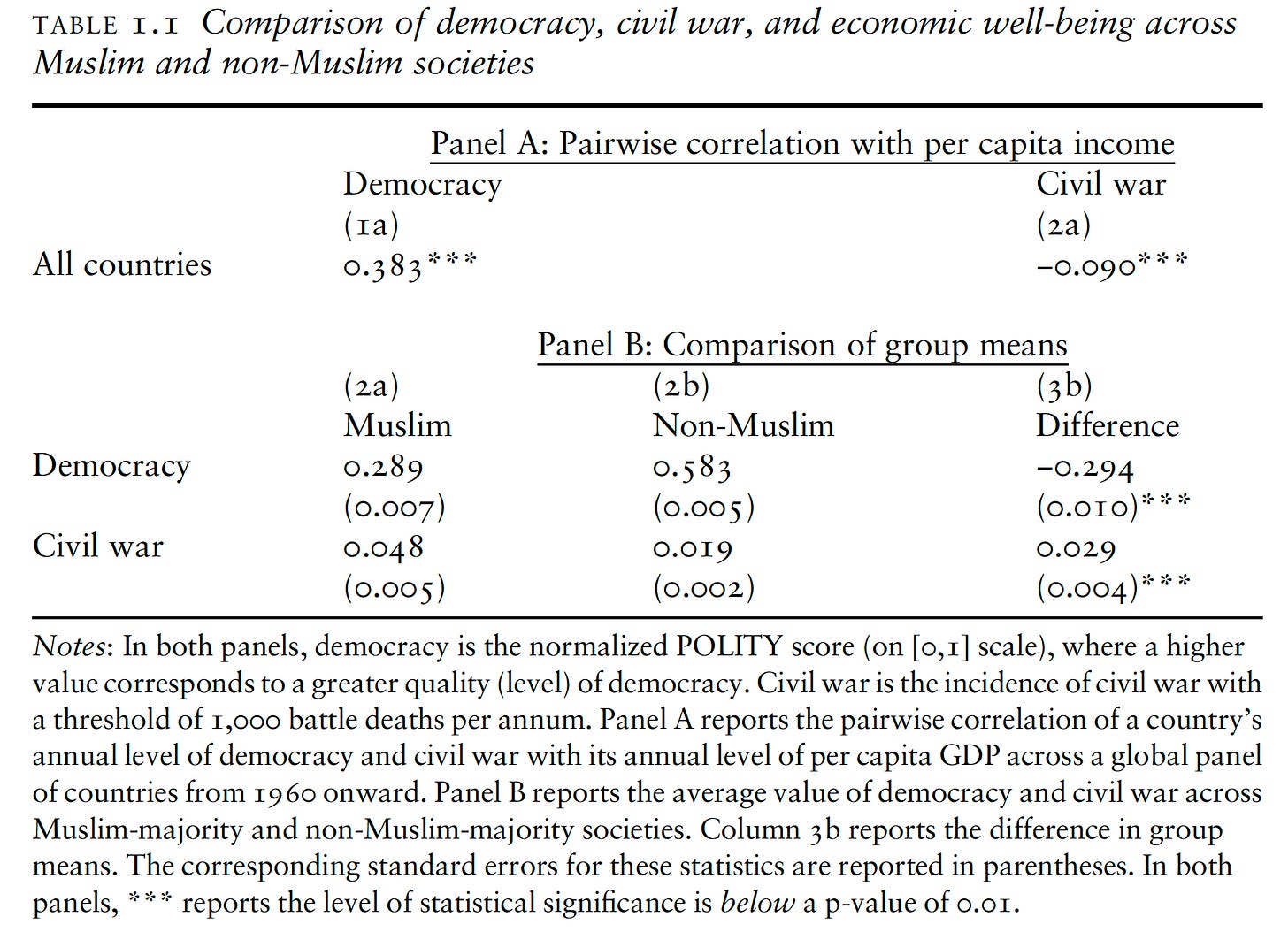"Conquest & Rents" by Faisal Ahmed (Review)
Muslim societies are more likely to be authoritarian and marred in civil war. The typical Muslim society is twice as likely to experience a civil war with 1000 battle deaths a year. The big question is why?
Islamic culture, Islamic law, the ulema-state alliance and oil have all been suggested. But they are inadequate. They fail to explain Muslim countries’ heterogeneity. Why are some Muslim countries (like Indonesia) actually democratic? Why are some Muslim dictatorships so durable, while others (like Somalia) have erupted in civil war?
Faisal Ahmed presents a new theory: “Conquest and Rents”.
As you can see below, Muslim countries tend to be more authoritarian.
Islam was often (not always) spread via conquest
A century after the death of Prophet Muhammed, Muslim armies had conquered the entire Middle East, North Africa, Spain, Tansoxania and the Sind.
Nomadic tribes quickly overcame (weakened) Byzantine and Sassanian enemies thanks to their greater mobility, strong military leadership, and unifying religious zeal. Muslim conquerors also imposed relatively ‘easy’ terms, argues Ahmed.
Conversion took three hundred years. Conquerors only demanded taxes, not conversion. Indigenous people increasingly converted - attracted by the ideals of equality, tax exemptions and opportunities for trade. By the 11th century, most conquered people were Muslim.
But Muslim armies never conquered Indonesia and Malaysia. Different institutions had long-run effects.







